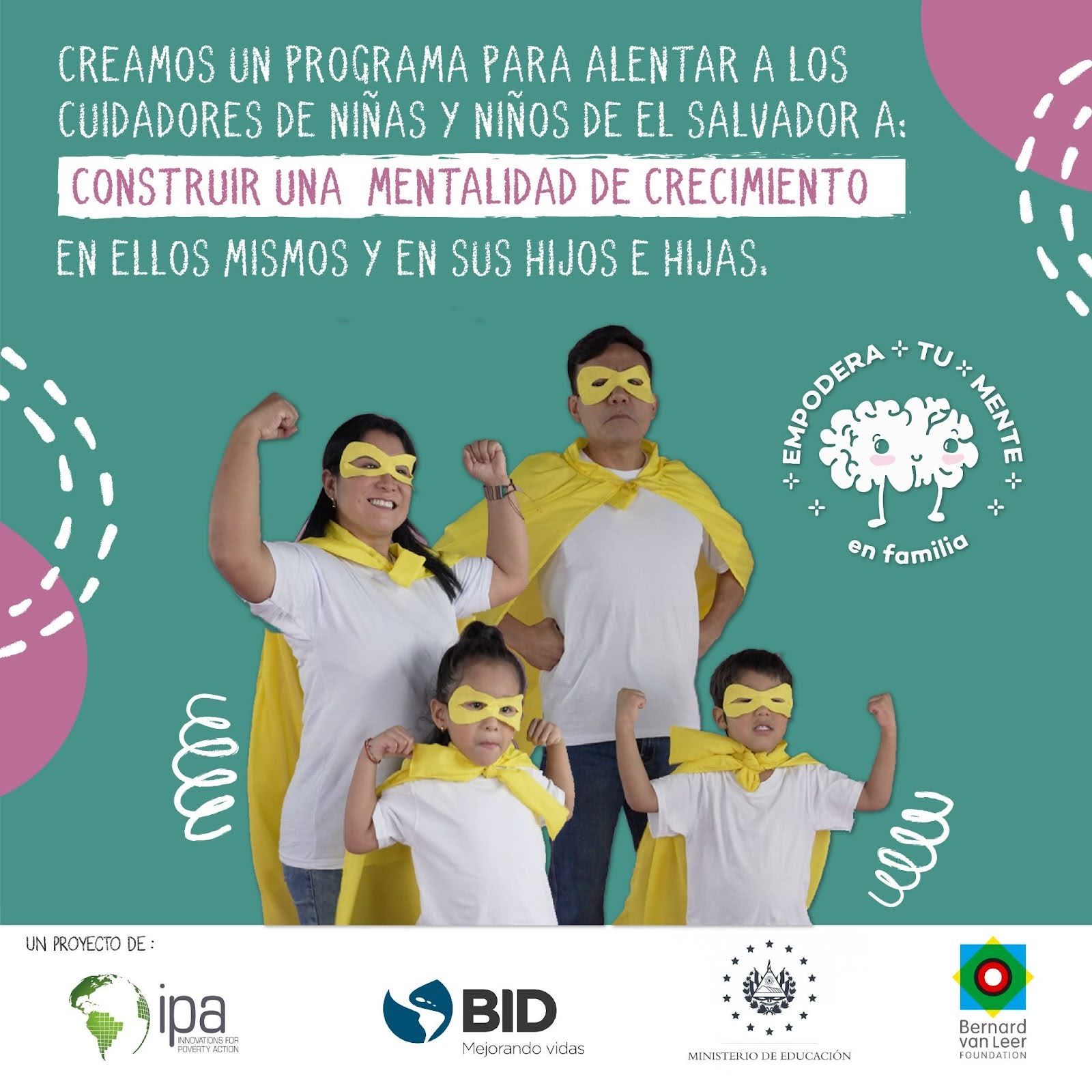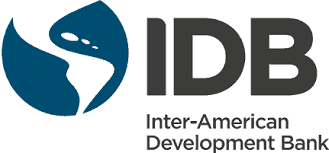Evaluating Growth Mindset Development in Parents and Children in El Salvador

Researchers partnered with IPA and El Salvador's Ministry of Education to evaluate the impact of the "Empodera tu Mente en Familia" program. This initiative focuses on developing a growth mindset in caregivers—the belief that abilities improve through effort. It also aimed to explore whether caregivers would transmit this mindset to their children aged 4-7 years. Research shows that a growth mindset fosters perseverance when facing challenges, which is strongly associated with long-term academic success. The program successfully strengthened caregivers' growth mindset beliefs and improved how they provided feedback to their children. Although this did not translate into a change in children's overall growth mindset beliefs, the results suggest improvements in their attitudes—such as demonstrating increased confidence when facing challenges—which could help lay a foundation for improved academic outcomes through enhanced resilience.
In low- and middle-income countries, early childhood programs focus mostly on academic skills and often overlook social and emotional skills. Research from Latin America shows that mindset affects up to 30 percent of academic success, while family background only affects 15 percent.1 A growth mindset—believing that we can get better through effort and practice—shapes how children approach learning challenges and fosters perseverance. This mindset helps children learn better and reduces learning gaps between different economic groups.2 Evidence suggests that perseverance and taking on challenges are key to long-term academic success, especially for students with lower achievement. When caregivers have a growth mindset, it changes how they help their children learn, how they react to mistakes, and what feedback they give.3 Yet most early childhood programs don't help caregivers build this mindset or teach it to their children.
Researchers partnered with IPA and El Salvador's Ministry of Education to conduct a randomized evaluation to assess whether the Empower Your Mind as a Family program could help caregivers develop a growth mindset and pass it on to their children aged 4 to 7 years. The program taught caregivers what growth mindset is, why it matters, and how to use it and teach it to their children daily. Caregivers first received a home visit where they watched educational videos about growth mindset, then got eight weekly phone coaching sessions and SMS reminders. The evaluation included 1,536 households in San Salvador, Soyapango, and nearby areas, randomly assigned to either participate in the program or serve as a comparison group. Researchers measured its effects through surveys, real-life scenarios for caregivers, and problem-solving games for children.
The Empower Your Mind as a Family program showed positive changes in both caregivers' mindsets and children's attitudes. Caregivers who participated in the program improved their growth mindset and gave better feedback when their children faced challenges. Children's attitude changed even though their beliefs about growth mindset did not: they showed more confidence in tackling difficult tasks, establishing a foundation for improved academic outcomes through enhanced resilience and engagement with challenging tasks.
The program worked better for some families than others. It was more effective for those with older children (ages 6-7) than for those with younger children (ages 4-5). Caregivers of younger children may have found the ideas too difficult for their kids, making it harder to apply and pass them on. Caregivers who already had some growth mindset were better at passing these attitudes to their children.
However, many families did not complete the program. While 76 percent of households received the initial information, only 54 percent started the phone coaching, and 11 percent completed the full program. Caregivers reported time constraints and difficulties maintaining engagement as the main barriers to completing the program.
The study shows hybrid growth mindset programs combining in-person and remote components work. Despite low completion rates, the program helped caregivers improve their mindsets and influenced children to tackle harder challenges. These attitude shifts, perseverance and taking on challenges, are key to long-term academic success, especially for students with a history of lower achievement. Future programs should create simpler materials for families with younger children and find better ways to keep families engaged until the end.
Sources
1 McKinsey & Company, "Factores que influyen en el desempeño de los estudiantes: Perspectivas de América Latina," 2017.
2 Carol S. Dweck and Ellen L. Leggett, "A Social-Cognitive Approach to Motivation and Personality," Psychological Review 95, no. 2 (1988).
3 Gunderson et al., "Parent Praise to 1‐3 Year‐Olds Predicts Children's Motivational Frameworks 5 Years Later," Child Development, 2013.
Implementing Partner

Funding Partners














